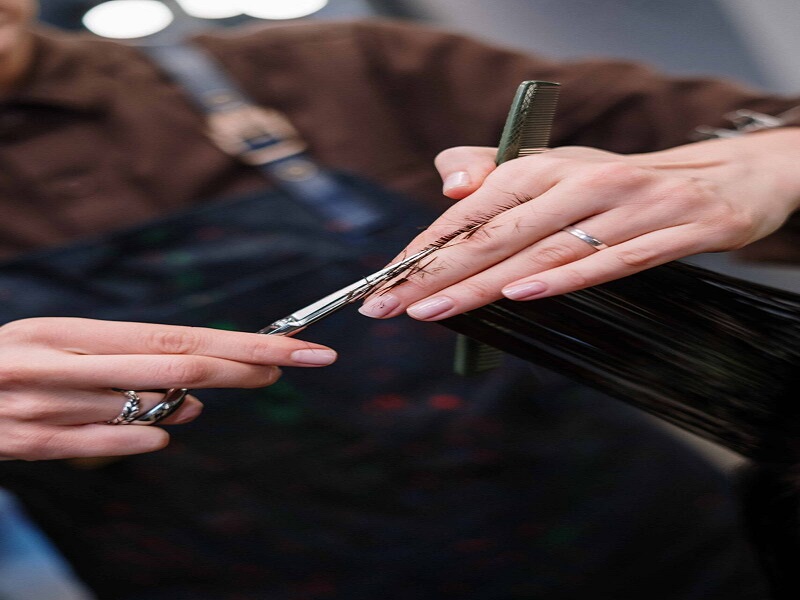Muslims refrain from cutting hair and nails before Eid al-Adha to honor the Prophet Muhammad’s tradition and show respect for those performing the Hajj pilgrimage. This act symbolizes purity and readiness for the significant festival, aligning with the spirit of sacrifice and devotion observed during this sacred period.
As the Islamic festival of Bakrid, or Eid al-Adha, approaches, many Muslims around the world participate in specific rituals that hold deep cultural and spiritual significance. One such practice is refraining from cutting hair and nails during the first nine days of Dhul-Hijjah, especially for those planning to offer a sacrifice (Qurbani) on Eid al-Adha. This article explores the reasons behind this tradition and its importance in the Islamic faith.
The Sacred Month of Dhul-Hijjah
Dhul-Hijjah is the twelfth and final month of the Islamic lunar calendar. It is considered one of the holiest months, with the first ten days being particularly significant. These days are marked by increased acts of worship, reflection, and devotion. The Prophet Muhammad emphasized the virtues of these days, stating: “There are no days in which righteous deeds are more beloved to Allah than these ten days” (Sahih Bukhari).
The Ritual Explained
Muslims who intend to perform Qurbani during Eid al-Adha are encouraged to abstain from cutting their hair and nails during the first nine days of Dhul-Hijjah. This practice is based on the teachings of the Prophet Muhammad, who said: “When you see the new moon of Dhul-Hijjah, if any one of you intends to offer a sacrifice, then he should not touch his hair and nails until he has offered his sacrifice” (Sahih Muslim).
The Significance Behind the Practice
- Symbolic Purity and Devotion: By not cutting hair and nails, Muslims symbolically maintain a state of physical purity and readiness for sacrifice. This act mirrors their inner spiritual preparation during these holy days.
- Solidarity with Pilgrims: This practice connects those who are not performing the pilgrimage (Hajj) with those who are. Pilgrims in Makkah observe a state of consecration (Ihram) where cutting hair and nails is prohibited. This shared ritual fosters a sense of unity and communal identity among Muslims worldwide.
- Commitment to Tradition: Following this Sunnah, or tradition of the Prophet, reflects a Muslim’s dedication to emulating his practices. It serves as a reminder of the ultimate act of obedience demonstrated by Prophet Ibrahim (Abraham) and his son Ismail (Ishmael), whose willingness to submit to divine command is commemorated on Eid al-Adha.
- Encouragement of Good Deeds: Observing this practice encourages Muslims to engage in more acts of worship, prayer, and charity during the first ten days of Dhul-Hijjah. It sets a tone of mindfulness and devotion that culminates in the celebration of Bakrid.
Scholarly Perspective
Most Islamic scholars agree that refraining from cutting hair and nails is recommended (Mustahabb) for those intending to perform Qurbani. Although not obligatory, it is highly encouraged as a way to draw closer to God and earn divine pleasure. Scholars also emphasize that the act of Qurbani itself is an important obligation for those who can afford it, as it commemorates the willingness of Prophet Ibrahim to sacrifice his son in obedience to God.
The practice of not cutting hair and nails during the first nine days of Dhul-Hijjah is a meaningful tradition that underscores themes of devotion, purity, and solidarity within the Muslim community. It serves as a reminder of the significance of sacrifice, both in the physical act of Qurbani and in the spiritual journey of submitting to divine will. By observing this tradition, Muslims prepare themselves for Eid al-Adha, embodying values of faith, unity, and obedience that are central to this sacred time.
This ritual, rooted in the sayings of the Prophet Muhammad, highlights the importance of these days: “There are no days more beloved to Allah that He be worshipped in than the ten days of Dhul-Hijjah” (Sahih Bukhari). Understanding and respecting these practices allows for greater appreciation of the rich tapestry of Muslim traditions and their spiritual significance. #hydkhabar

